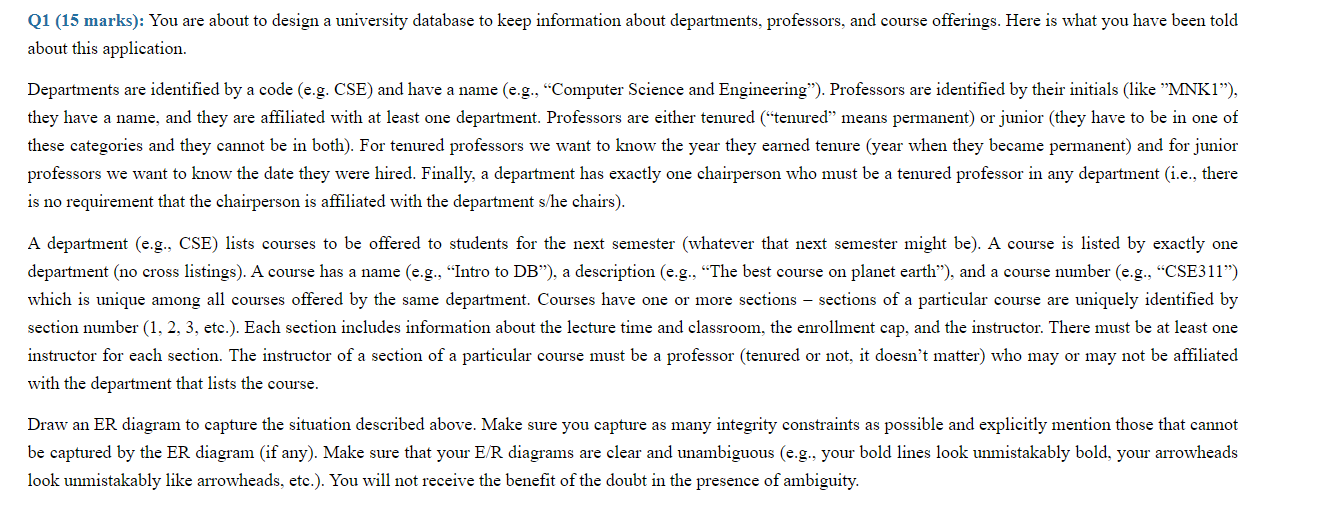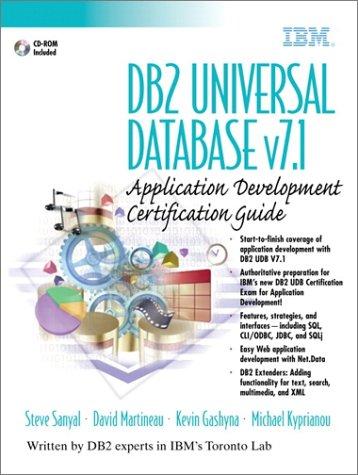
Q1 (15 marks): You are about to design a university database to keep information about departments, professors, and course offerings. Here is what you have been told about this application. Departments are identified by a code (e.g. CSE) and have a name (e.g., "Computer Science and Engineering"). Professors are identified by their initials (like "MNK1), they have a name, and they are affiliated with at least one department. Professors are either tenured (tenured means permanent) or junior (they have to be in one of these categories and they cannot be in both). For tenured professors we want to know the year they earned tenure (year when they became permanent) and for junior professors we want to know the date they were hired. Finally, a department has exactly one chairperson who must be a tenured professor in any department (i.e., there is no requirement that the chairperson is affiliated with the department s/he chairs). A department (e.g., CSE) lists courses to be offered to students for the next semester (whatever that next semester might be). A course is listed by exactly one department (no cross listings). A course has a name (e.g., Intro to DB"), a description (e.g., "The best course on planet earth), and a course number (e.g., "CSE311") which is unique among all courses offered by the same department. Courses have one or more sections sections of a particular course are uniquely identified by section number (1, 2, 3, etc.). Each section includes information about the lecture time and classroom, the enrollment cap, and the instructor. There must be at least one instructor for each section. The instructor of a section of a particular course must be a professor (tenured or not, it doesn't matter) who may or may not be affiliated with the department that lists the course. Draw an ER diagram to capture the situation described above. Make sure you capture as many integrity constraints as possible and explicitly mention those that cannot be captured by the ER diagram (if any). Make sure that your E/R diagrams are clear and unambiguous (e.g., your bold lines look unmistakably bold, your arrowheads look unmistakably like arrowheads, etc.). You will not receive the benefit of the doubt in the presence of ambiguity







